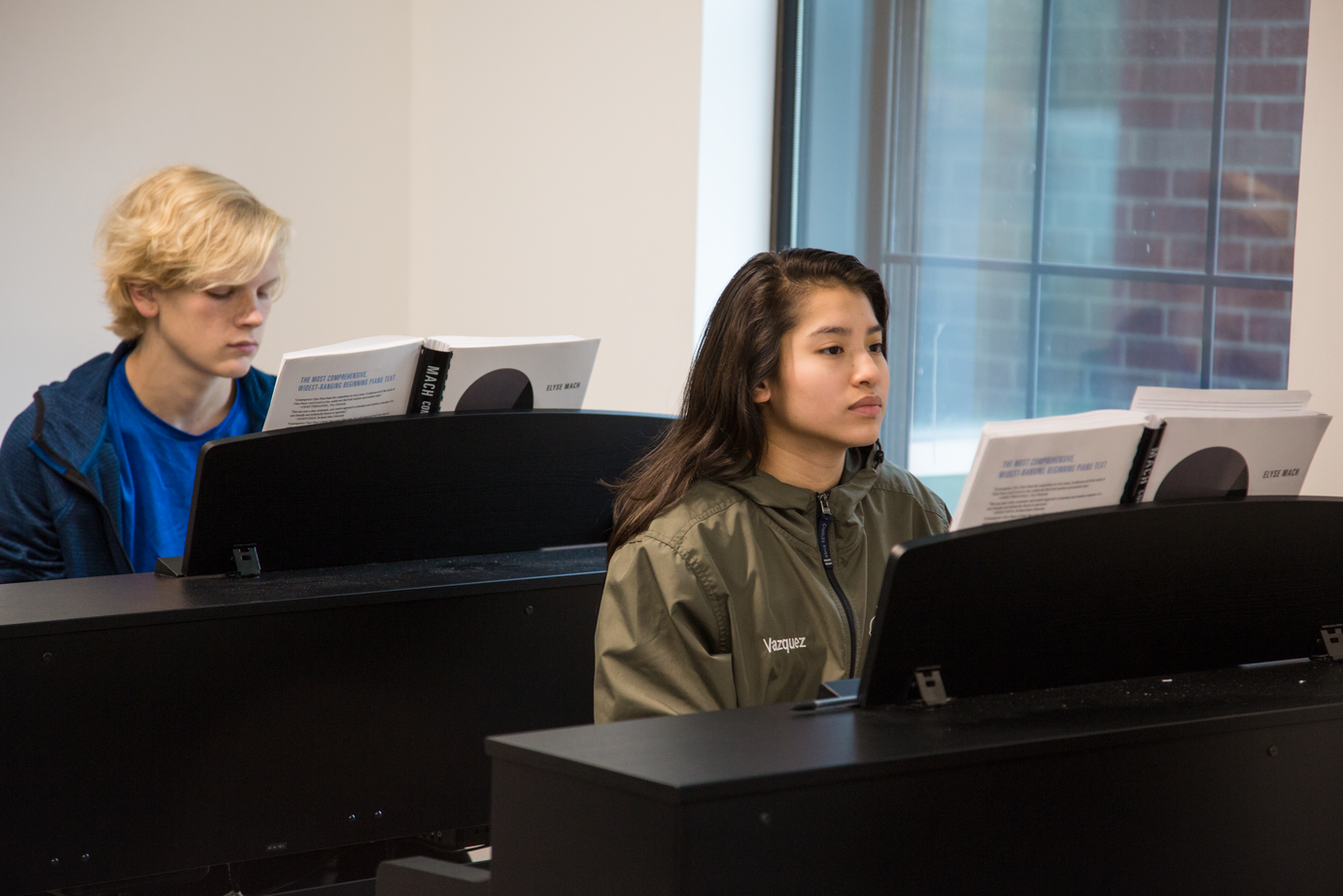Music Courses for Non-Majors
Students not majoring in music are encouraged to continue their music education by participation in music ensembles and enrollment in the following courses.
The following are general course descriptions and are not intended for academic planning purposes. For a complete list of course offerings, please review the academic catalog.
Introduction to the art of music in Western civilization, and its elements, styles, and masterworks from the Middle Ages to the present. Emphasis on repertoire study, listening, and concert attendance. On and/or off-campus concert attendance required. For the non-music major. Cannot be applied toward a major or minor in music.
For students with little or no piano study. Functional keyboard harmony, scales, transposition, simple score reading, sight-reading, improvisation, and repertoire. For music majors, minors, and concentrations. Placement by piano faculty.
For students with some piano study. Functional keyboard harmony, scales, transposition, simple score reading, sight-reading, improvisation, and repertoire. For music majors, minors, and concentrations.
For students with a minimum of 2-4 years of piano study. Functional keyboard harmony, scales, transposition, score reading, accompaniments, sight-reading, improvisation, repertoire, and skills required for specific majors. For music majors as required by degree track.
For students with a minimum of 3-5 years of piano study. A highly focused and practical approach to the performance of music materials commonly used in music education and worship programs. Areas of study include: advanced score reading using C clefs; transpositions, and keyboard improvisation. For music majors as required by degree track.
This course involves beginning voice instruction in a group setting.
This course involves beginning guitar instruction in a group setting.
A study of American popular music from the birth of rock-and-roll in the 1950s to the present. The basic elements of music will also be covered. Individual works are analyzed and placed within their cultural and historical frameworks. Listening and analysis.
An introduction to the cultures and historical developments of major world regions and their global interactions, focusing on the nineteenth, twentieth, and twenty-first centuries, using music as the primary form of cultural analysis. Music will be studied from an ethno-musicological perspective to provide insight into several world cultures and the historical events that shaped them. Listening and analysis will be components of this course.


